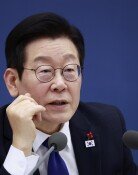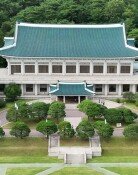South Korea launches 30 trillion won rescue plan
South Korea launches 30 trillion won rescue plan
Posted June. 25, 2025 07:06,
Updated June. 25, 2025 07:06
The South Korean government has announced a massive 30 trillion won supplementary budget aimed at supporting small business owners and self-employed individuals on the brink. Under this “super budget,” every citizen is eligible for up to 500,000 won in relief funds. The administration expects a short-term boost in consumer spending to help revive the sluggish economy. The so-called “livelihood recovery coupon” may serve as a tonic for financially starved households. However, without addressing underlying structural weaknesses, such support risks becoming nothing more than temporary symptom relief.
As urgent as the supplementary budget itself is the need for restructuring marginal industries. Without removing decaying segments and encouraging new growth, the economy cannot move forward. In Pohang, once dubbed the “city of steel,” POSCO’s first wire rod factory halted operations after 45 years. The smokestacks in the petrochemical complex of Yeosu have long stopped emitting. A combination of factors, including China’s relentless low-price competition, America’s protectionist tariffs, and South Korea’s high-cost structure, has eroded the foundations of its manufacturing sector, particularly in the steel and petrochemical industries.
This crisis should not be dismissed as a routine downturn. It is an existential threat that could dismantle the nation’s entire industrial ecosystem. Reviving a vanished base industry is exceptionally difficult. The United States, despite its recent drive to revive domestic manufacturing through high tariffs, struggles to regain its past glory due to an aging workforce and degraded infrastructure.
We are now in an era where industrial restructuring can no longer be left to private enterprise alone. The global trade environment is becoming increasingly state-driven, with major economies aggressively supporting their domestic industries. Amid this trend, Korea lost a crucial six months due to political upheaval, including a martial law incident and a presidential impeachment. The government must now step in as a trusted surgeon.
Signs of industrial overhaul are beginning to emerge. The ruling party recently proposed a special law for the petrochemical industry, and a potential mega-deal between HD Hyundai and Lotte Chemical is taking shape. However, due to the capital-intensive nature of these industries, voluntary restructuring is unlikely to succeed on its own. Government and policy financing institutions must do more than inject capital. They must help private firms decisively cut inefficient assets while preserving competitive core assets.
Restructuring must be both bold and meticulous. It cannot stop at downsizing facilities. The links to core technologies and skilled personnel must be maintained, and the surrounding industrial ecosystems must be revamped in tandem. Even the most advanced sectors, such as artificial intelligence and battery technology, are built upon a foundation of steel and chemicals. Smart factories cannot operate without steel, and solid-state batteries would not exist without advances in petrochemical technology.
Industrial reform is never easy. The trauma of failed government-led mergers in the auto, semiconductor, and shipping industries still lingers. Moreover, the current administration lacks seasoned corporate restructuring experts capable of taking decisive action.
Nonetheless, President Lee Jae-myung pledged during his campaign to support the transition of marginal industries. It is now time to deliver on that promise. The knife is already in hand. What remains is to feel the pulse of industry with precision and show leadership that can revive the Korean economy.







